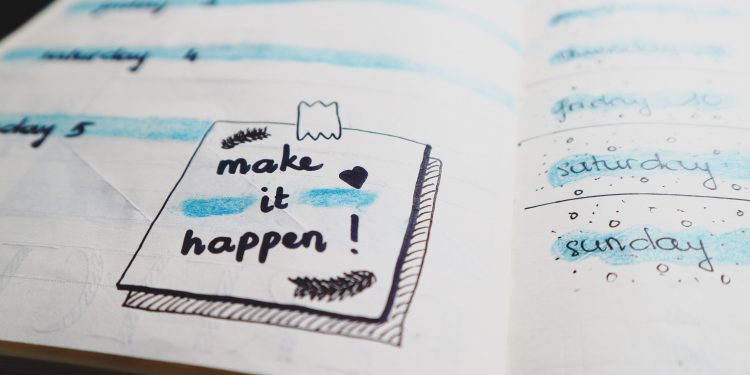Do you need to plan a party, holiday, a business, your work task or your whole year? If you don’t know where to start, I’ll explain a simple method you can use to outline and plan just about anything. It’s also useful to figure out if your idea is doable or it needs some adjusting. This article will give you needed resources and downloadable timetable prepared just for you.
Very often we have an idea, problem or set of information obstructing our thoughts and we feel blocked by them. There are situations when you are overwhelmed, you need to finish a task but you just can’t grasp it at the moment. The common examples of this come from work situations, but believe it or not one of those stress triggers is your wedding for example. So whatever it is, keep calm, there is a method you can use to get yourself sorted. If you think it’s goofy to take a piece of paper and plan something by writing it down, just do it anyway and you don’t have to show it to anyone. Just let this tool help you, use it and move on.
Over time I’ve even noticed I started thinking in this organized way. For example, if there was a problem people would contact me about, I would find it easy to see the solution or at least logical step to the solution.
So let’s start, bit by bit, I’ll shortly explain each element of the plan.
The problem
This is where you ask yourself what are you solving. What is the reason you need to make this plan? Are there more causes, which is the true one you need to deal with? For example if you are planning the wedding, the problem you could be facing is:
How to give the best possible reception for a tight budget and/or in a short deadline?
Now you know what your priority to deal with is. So your focus is on quality, budget and time-frame. This calls for some creativity, trust me, I did it.
Objectives
Now you want to set one general objective – the ideal situation you are striving to, but remember this is the one you don’t have to pressure yourself to complete 100%. It is there to set your direction.
Example overall objective: Give the elegant and fun wedding for 5000 Euros budget in three months time.
Than make some specific objectives to help you out:
Specific objective 1: Find an elegant but affordable theme for the wedding;
Specific objective 2: Find the venue which fits into the budget, maximum 3000 Euros, 50 guests;
Specific objective 3: Finish all preparations in 2 months and 10 days.
Expected results
These will help you know whether you are successfully going towards your objectives. Expected results are the picture you want to see at the end.
Example: Excellent atmosphere on the wedding, Venue reflects our personalities, Budget respected, Guests give excellent feedback.
Activities
Now following each specific objective outline the activities that need to be done in order to reach them. Try to order them in the way they are going to be realized.
People involved/target group/beneficiaries
Who is your plan for, who will be the end user? In this case you, your husband and guests.
Resources/budget
Plan the money here; use the list or the chart. Break it down to individual expense. What do you need that you don’t have to buy, but can borrow or you already have somewhere? What kinds of human resource support do you need- what can your friends and family do?
Timetable
Put it all in a timeframe. On one side list all the activities, on the other give these activities a calendar and who is in charge of what information. This is a very helpful tool.

Outputs
Which help you measure success/indicators – Remember results we mentioned above? Well how will you know you’ve reached them? For our wedding example it’s easy, people will approach you, thank you, smile and you’ll know the feedback. If your project is a workshop of some kind, you might want to make a questionnaire for the end of it, so that users could rate it and say their opinion.
Sustainability
Will the effects of your project stay? Or will they vanish as if you never did anything? Thinking about this early enough might help you decide whether to go with it at all. In the wedding example, you’ll always have the memories, so will your family. There will be stories, photos, video to share to new generations, so huge emotional value. You might want to consider the impact on your budget and will you be able to handle it.
In case of the workshop, people who attended it will gain the knowledge and experience.
Evaluation and monitoring
Who will say if everything went right? Who will check up on things once more before the big day? You’ll need to know how the venue and catering services went when you sit down with the service providers to pay.
Once you do this, or just part of this, if only the timetable with budget, you’ll get the needed confidence to continue or you’ll have the better understanding about your idea.
So go on, plan on and don’t stress about it.
About the Author

Sanja Ivandic is one of the Co-Founders of Outside Multicultural Magazine. Sanja relocated to Ireland from Bosnia and Herzegovina. Inspired by the Sligo Intercultural Project she managed for a while, as well as her work in various NGOs such as LEDA and World Vision, this Magazine was born.
Sanja wrote for several magazines, enjoys every form of writing, be it poems, case studies or prose. Her special skills lie in marketing. Currently she is an Employment Advisor. You can get in touch with Sanja by emailing her on: [email protected]
Sanja’s words on multiculturalism: “Multiculturalism for me is a synonym for humanity. Being diverse and similar at the same time is who we are and we must never forget it. Remembering this evokes respect, love, and peace, so we must keep reminding ourselves about the word multicultural”.





